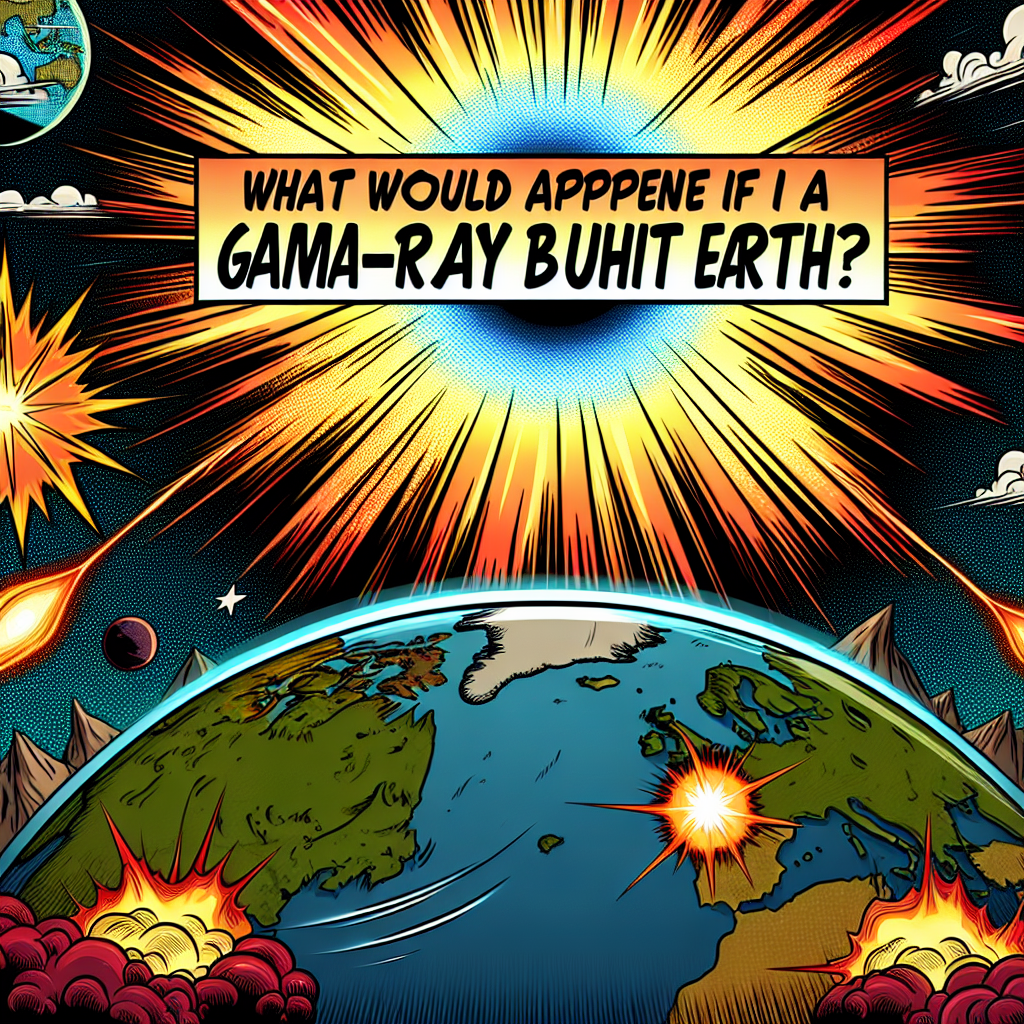Gamma-ray bursts are the most powerful explosions in the universe, releasing an immense amount of energy in the form of gamma rays, X-rays, and visible light. If a gamma-ray burst were to hit Earth, it would be catastrophic.
Imagine a massive storm cloud covering the entire sky, but instead of rain or hail, it's a deluge of high-energy radiation. This burst of energy would be millions of times more powerful than any storm on Earth, and it would affect not just the atmosphere, but the very fabric of our planet.
The initial blast of gamma radiation would strip away the electrons from the atoms in the atmosphere, creating a "ionized plasma" that would interfere with our satellite communications, GPS, and even our power grids. It would be like a massive, cosmic-scale electromagnetic pulse (EMP), crippling our modern infrastructure.
In the first few seconds, the radiation would also ionize the air, creating a massive increase in the number of free electrons. This would lead to an immense increase in the electrical conductivity of the atmosphere, causing widespread electrical discharges, similar to lightning, but on a global scale.
The effects on living organisms would be devastating. The radiation would cause massive cellular damage, mutations, and even death. It would be like a "cosmic rays" machine, bombarding every living cell on the planet with high-energy particles. Even the hardiest organisms, like cockroaches, would struggle to survive.
The Earth's magnetic field, which protects us from harmful solar and cosmic radiation, would be severely disrupted. It would be like a giant, cosmic-scale magnet, warping and twisting the magnetic field, exposing the entire planet to the full fury of the gamma-ray burst.
The atmosphere would also be affected, as the high-energy radiation would break apart the molecules of gases like nitrogen and oxygen, creating a cascade of chemical reactions that would alter the chemistry of the air. It would be like a global-scale, chemical reaction gone wrong, as the very air we breathe is transformed into a toxic mixture.
The effects on the climate would be catastrophic. The radiation would heat up the stratosphere, causing it to expand and contract, leading to massive changes in global weather patterns. It would be like a global-scale, cosmic "El Niño" event, but instead of just altering the weather, it would reshape the very fabric of our climate.
The ozone layer, which protects us from harmful UV radiation, would be severely depleted, leaving the planet exposed to the full fury of the sun's radiation. It would be like a global-scale, UV radiation bath, making it difficult for life to thrive.
The Earth's rotation and magnetic field would also be affected, as the radiation would transfer massive amounts of energy to the planet's core. It would be like a cosmic-scale, gravitational "kick," causing the planet's rotation to slow down, leading to longer days and erratic weather patterns.
In the aftermath, the planet would be left scarred, with the radiation altering the chemistry of the soil, water, and air. It would be like a global-scale, radioactive fallout, as the very building blocks of life are transformed into something alien and hostile.
The likelihood of such an event is low, but not impossible. Gamma-ray bursts are rare, but we know they occur in the universe. The Fermi Gamma-Ray Space Telescope has detected hundreds of bursts, and scientists estimate that a burst goes off in the universe about once a day. The odds are against us, but it's essential to be aware of the risks and continue to monitor the universe for signs of these cosmic explosions.
In conclusion, a gamma-ray burst hitting Earth would be an extinction-level event, rivaling the most catastrophic asteroid impacts in history. It's a reminder of the awe-inspiring power of the universe and the importance of continued exploration and research into the mysteries of the cosmos.

Popular Space Questions
Find answers to the trending space questions being asked by our community on social media.
- How many galaxies are there in the universe?
- What would happen if a pulsar's beam hit Earth?
- How far is Pluto from Earth?
- How many planets are in the Milky Way?
- How many planets are in our solar system?
- What are the planets in order?
- What if we could create a Dyson sphere around the sun?
- What if we found a way to manipulate gravity?
- How big is the Earth?
- How far is the Sun from Earth?